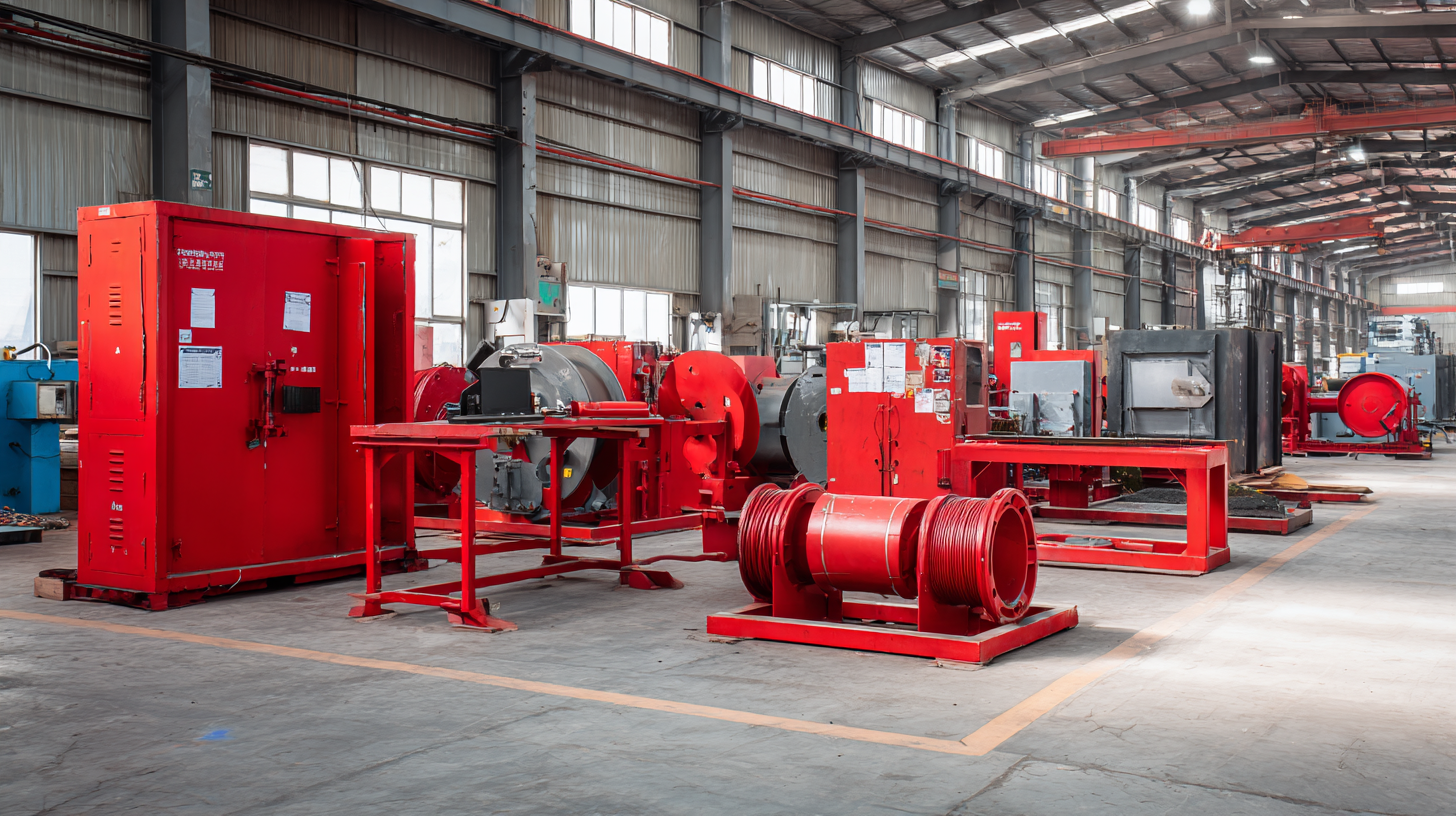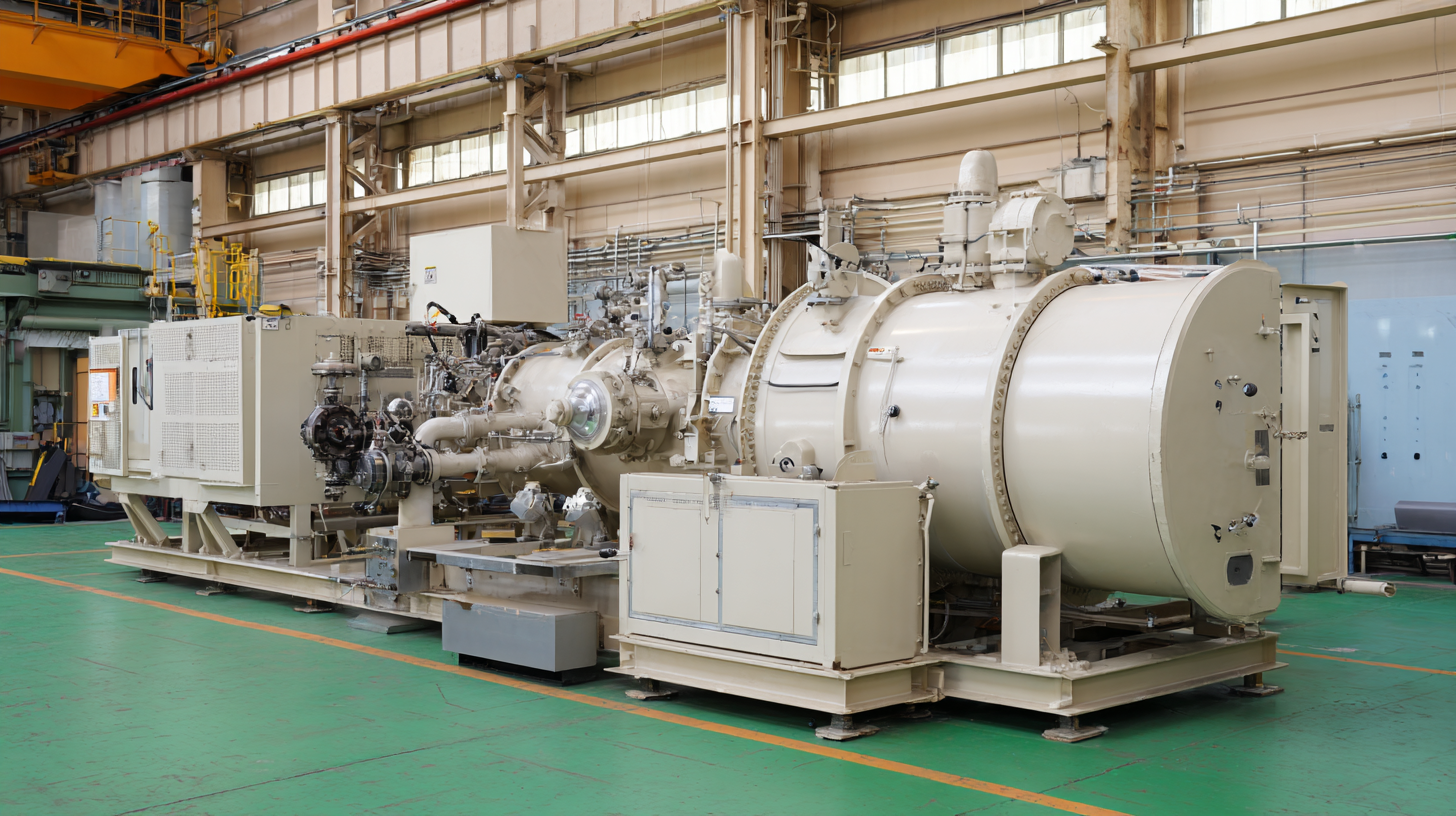In the rapidly evolving landscape of manufacturing and surface finishing, understanding the complexities of global import/export certifications is crucial, especially for businesses specializing in Arc Spraying Equipment. As we look towards the technological advancements anticipated in 2025, it becomes increasingly important to navigate regulatory frameworks that govern international trade. The efficient application of arc spraying techniques in diverse industries, ranging from aerospace to automotive, hinges not only on the equipment's performance but also on compliance with various certification standards.

This blog will delve into the best practices for achieving certification success in the realm of Arc Spraying Equipment, highlighting the trends and challenges that will shape the global market in the coming years. By staying informed and strategically approaching certification processes, companies can enhance their competitive advantage and ensure their place in the forefront of innovation and quality in surface finishing technology.
Navigating the complex landscape of import/export certifications is crucial for businesses involved in arc spraying equipment. Understanding certification basics is the first step toward ensuring compliance and enhancing market access. These certifications not only validate the quality and safety of products but also demonstrate adherence to international standards. Familiarizing yourself with the specific requirements in target markets will streamline the process and minimize delays.
Each country has its unique set of regulations governing the import and export of industrial equipment, including arc spraying systems. It is essential to research the necessary certifications, such as CE marking in Europe or ANSI standards in the United States. Additionally, collaborating with local experts or certification bodies can provide valuable insights and facilitate a smoother certification process. By prioritizing these certifications, businesses can avoid costly penalties, build trust with customers, and ultimately drive success in the global marketplace.
| Certification Type | Issuing Authority | Country/Region | Required Documents | Processing Time | Validity Period | Compliance Standards |
|---|---|---|---|---|---|---|
| CE Marking | European Commission | European Union | Technical documentation, Declaration of Conformity | 4-6 weeks | Indefinite; re-assessment required | EN Standards |
| UL Listing | Underwriters Laboratories | USA | Test reports, Product samples, Factory inspections | 6-12 weeks | 5 years; renewal necessary | UL Standards |
| ISO 9001 Certification | International Organization for Standardization | Global | Quality management system documentation | 3-6 months | 3 years; annual surveillance audits | ISO Standards |
| CSA Certification | Canadian Standards Association | Canada | Test reports, Manufacturing process details | 8-10 weeks | 5 years; re-evaluation required | CSA Standards |
As the global market for arc spraying equipment expands, understanding key regulations that will impact trade in 2025 is crucial for manufacturers and exporters. Various international standards set by organizations such as ISO and ASTM are expected to evolve, ensuring that equipment adheres to increased safety and performance benchmarks. Compliance with these standards not only enhances product acceptance in foreign markets but also reduces the risk of costly trade disputes.
Additionally, different regions enforce unique certifications that reflect their environmental and safety concerns. For instance, the EU’s CE marking indicates compliance with stringent safety directives, while the US has its own set of certifications focusing on operational safety and energy efficiency. Staying abreast of these regulations will be key in mitigating risks associated with customs delays and penalties. Engaging with regulatory agencies and industry experts can provide valuable insights into the certification landscape, ensuring that businesses remain competitive in the ever-changing global marketplace.

 Navigating global import/export certifications is essential for success in the arc spraying equipment industry. Achieving compliance with certification requirements not only ensures your products meet quality standards but also helps build trust with clients. To master quality control compliance in business process outsourcing (BPO), organizations must familiarize themselves with the necessary regulations and testing protocols relevant to their market. This understanding allows businesses to streamline their operations while ensuring adherence to international standards.
Navigating global import/export certifications is essential for success in the arc spraying equipment industry. Achieving compliance with certification requirements not only ensures your products meet quality standards but also helps build trust with clients. To master quality control compliance in business process outsourcing (BPO), organizations must familiarize themselves with the necessary regulations and testing protocols relevant to their market. This understanding allows businesses to streamline their operations while ensuring adherence to international standards.
Implementing best practices is crucial for overcoming common challenges in certification compliance. Establishing a robust quality management system and conducting regular internal audits can help businesses identify gaps in compliance. Moreover, training employees on the importance of certification and quality assurance can further instill a culture of excellence within the organization. By proactively addressing certification requirements, companies can enhance their credibility in the market and foster long-lasting relationships with clients, ultimately driving business success.
When engaging in global trade of arc spraying equipment, understanding the essential documentation for importing and exporting is crucial. The paperwork involved can often seem overwhelming, but it serves as a critical gateway to ensuring compliance with international regulations. Key documents include commercial invoices, packing lists, and certificates of origin that confirm the equipment’s origin and manufacturing standards. These documents not only provide proof of the equipment's specifications but also play a significant role in determining the applicable tariffs and duties.
In addition to these foundational documents, import and export licenses may be required based on the specific category of equipment and the countries involved in the transaction. Compliance with safety and environmental regulations is often mandated, necessitating certificates that confirm adherence to standards such as ISO or local regulations. Missing or incorrect documentation can lead to delays, fines, or even seizure of goods, highlighting the importance of thorough preparation when navigating the international trade landscape. Prioritizing meticulous documentation practices can ultimately facilitate smoother transactions and contribute to the overall success in the arc spraying equipment market.
As the demand for advanced arc spraying equipment continues to rise, staying ahead of certification and compliance standards is crucial for manufacturers and exporters. Future trends indicate a significant shift towards more streamlined and digitized certification processes. Automation of compliance documentation not only expedites the approval workflow but also enhances accuracy, thus reducing the risk of costly errors in manufacturing. As businesses lean toward adopting these technologies, the industry can expect a smoother navigation of international standards, making it easier for companies to gain access to global markets.
Moreover, the emphasis on sustainability and environmental compliance is becoming increasingly paramount in the certification of arc spraying equipment. Future regulations are likely to prioritize eco-friendly practices, requiring manufacturers to adopt greener technologies and materials. Equipment that demonstrates reduced environmental impact not only aligns with compliance standards but also meets the growing consumer demand for responsible manufacturing. By embracing these forward-looking trends, companies will position themselves better in the competitive landscape, ensuring not only compliance but also a commitment to innovation and sustainability in arc spraying operations.
TradeManager
Teams
VKontakte


